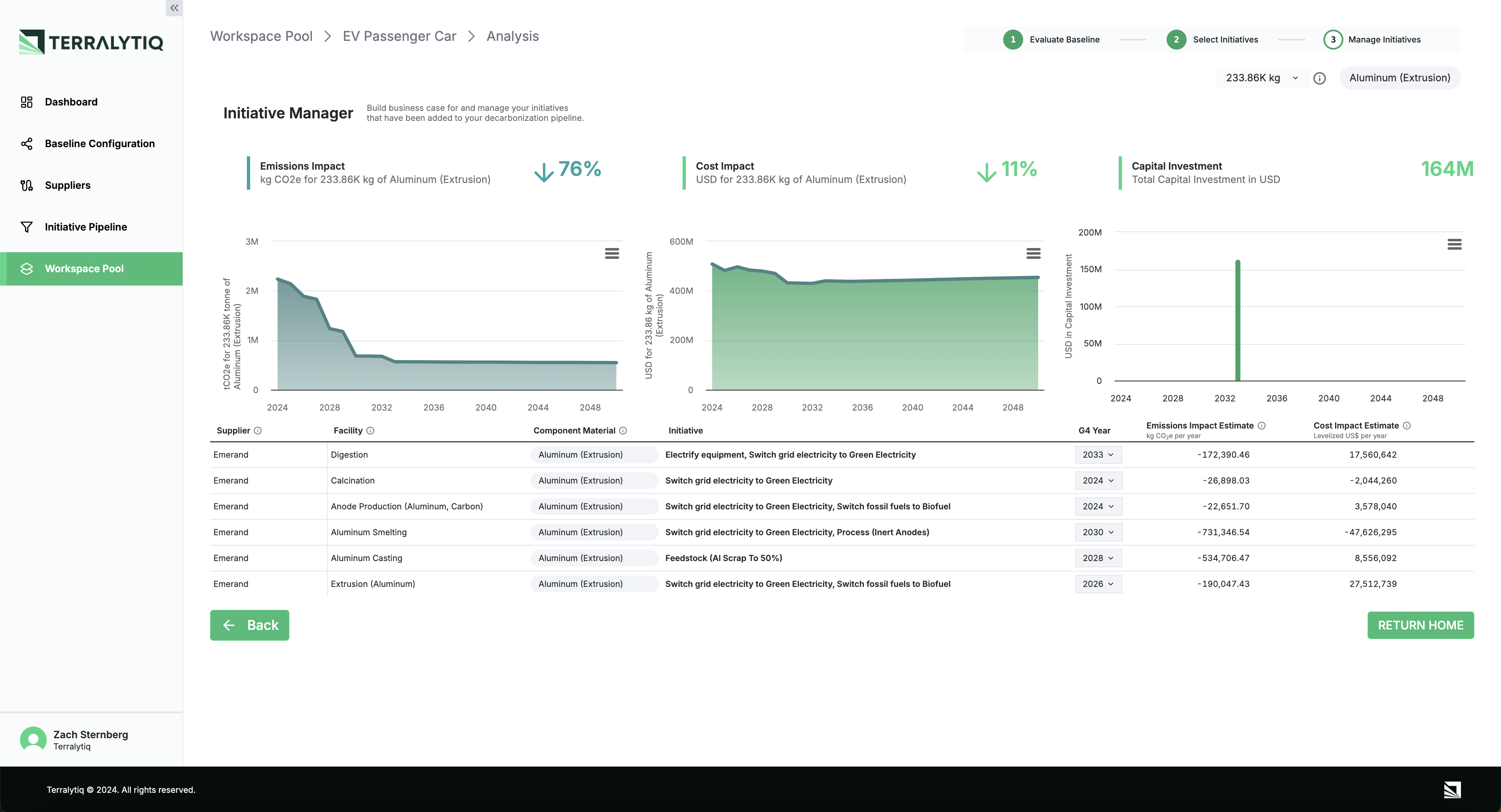Terralytiq
Terralytiq co-founder Alexander Pfeiffer is helping companies turn climate ambition into action through intuitive, scalable software. By streamlining how businesses measure and reduce their supply chain emissions, Pfeiffer and his team are transforming one of the most complex climate challenges into a source of opportunity. Terralytiq’s platform delivers instant, high-quality emissions insights without requiring perfect data, allowing companies to act faster and more effectively. With a focus on automation, simplicity, and real-world impact, Terralytiq is empowering global manufacturers to decarbonize their operations—and lead the transition to a net-zero future.
Terralytiq helps manufacturers reduce their climate impact by making supply chain emissions visible and actionable. The platform identifies high-emissions materials and processes—like carbon-intensive aluminum or diesel-powered production—and guides companies toward smarter sourcing and decarbonization strategies, from switching suppliers to adopting cleaner energy inputs.
Alexander Pfeiffer, co-founder of Terralytiq, is driven by a simple but urgent question: How do we reach net zero. For Pfeiffer, a scuba diver and father of two, this mission is deeply personal. “Most coral reefs will be gone by 2050,” he notes. “I want my daughters to experience the world I see now—and to live in one worth living in.”
.jpg)
Terralytiq was born from a problem Alexander and his co-founder saw repeatedly in their former roles: companies struggling to understand and reduce their supply chain emissions. While supply chains account for a significant share of a company's carbon footprint, most businesses lack the tools to identify which materials and processes are contributing the most—or how to fix it.
Terralytiq offers a unique solution. Rather than requiring perfect data up front, their platform uses intuitive, expert-informed modeling to deliver a highly accurate "day one" estimate of a company's emissions. As better data becomes available, the platform refines its insights, but the goal is immediate, actionable intelligence. "We help companies make sense of their environmental impact quickly," Pfeiffer explains. “That way, they can spend less time gathering data and more time reducing emissions."
Focusing on companies that manufacture physical goods—from cars to refrigerators—Terralytiq breaks down products into their raw material components, like aluminum, steel, or copper. The platform maps supply chain footprints and recommends targeted solutions, such as sourcing aluminum from Norway instead of China, where the emissions per ton are up to eight times higher due to energy mix.
Terralytiq's design philosophy centers on simplicity and automation. “We want the platform to be so intuitive that it doesn’t require a manual or a consultant,” Pfeiffer says. For suppliers new to sustainability, that means step-by-step guides, helpful tooltips, and workflows designed to make complex information easy to navigate.

The team is laser-focused on scalability. As a pure software-as-a-service (SaaS) company, Terralytiq aims to support hundreds or thousands of clients simultaneously. That means streamlining every stage of the user journey, especially the early data collection phase, where many companies get stuck.
Ultimately, Terralytiq tracks its impact through a metric called "emissions under management"—the total footprint of customers using the platform to monitor and reduce their emissions. Pfeiffer envisions a future where that metric evolves into a full impact pipeline: from emissions analyzed to initiatives implemented to carbon reductions achieved.
For Alexander, working in climate is about more than just business success. It’s about securing a livable future for all. “If I had a magic wand, I’d get us to net zero before we exhaust the 1.5-degree budget,” he says. “But short of that, I want to help every company decarbonize faster—and create a path that others can follow.”
By making environmental impact visible and actionable at scale, Terralytiq is empowering companies to move from intention to implementation—turning supply chains into one of the most powerful levers for climate action.